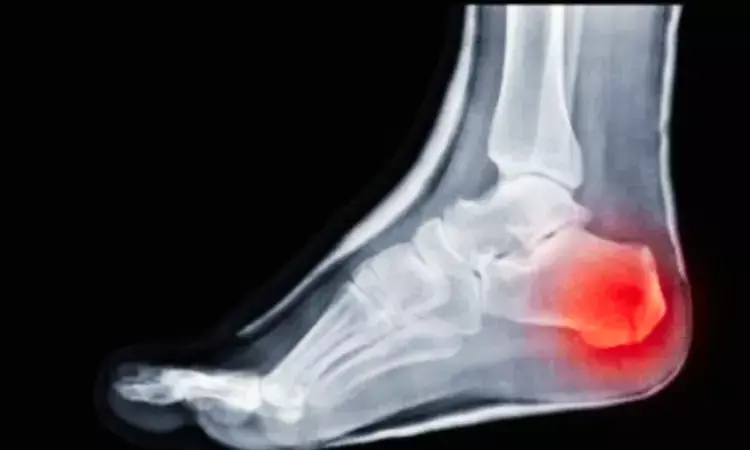- Home
- Medical news & Guidelines
- Anesthesiology
- Cardiology and CTVS
- Critical Care
- Dentistry
- Dermatology
- Diabetes and Endocrinology
- ENT
- Gastroenterology
- Medicine
- Nephrology
- Neurology
- Obstretics-Gynaecology
- Oncology
- Ophthalmology
- Orthopaedics
- Pediatrics-Neonatology
- Psychiatry
- Pulmonology
- Radiology
- Surgery
- Urology
- Laboratory Medicine
- Diet
- Nursing
- Paramedical
- Physiotherapy
- Health news
- Fact Check
- Bone Health Fact Check
- Brain Health Fact Check
- Cancer Related Fact Check
- Child Care Fact Check
- Dental and oral health fact check
- Diabetes and metabolic health fact check
- Diet and Nutrition Fact Check
- Eye and ENT Care Fact Check
- Fitness fact check
- Gut health fact check
- Heart health fact check
- Kidney health fact check
- Medical education fact check
- Men's health fact check
- Respiratory fact check
- Skin and hair care fact check
- Vaccine and Immunization fact check
- Women's health fact check
- AYUSH
- State News
- Andaman and Nicobar Islands
- Andhra Pradesh
- Arunachal Pradesh
- Assam
- Bihar
- Chandigarh
- Chattisgarh
- Dadra and Nagar Haveli
- Daman and Diu
- Delhi
- Goa
- Gujarat
- Haryana
- Himachal Pradesh
- Jammu & Kashmir
- Jharkhand
- Karnataka
- Kerala
- Ladakh
- Lakshadweep
- Madhya Pradesh
- Maharashtra
- Manipur
- Meghalaya
- Mizoram
- Nagaland
- Odisha
- Puducherry
- Punjab
- Rajasthan
- Sikkim
- Tamil Nadu
- Telangana
- Tripura
- Uttar Pradesh
- Uttrakhand
- West Bengal
- Medical Education
- Industry
Robot-Assisted Fixation Outperforms Traditional Methods for Calcaneal Fractures, Study Finds

China: A recent systematic review and meta-analysis have highlighted the significant advantages of robot-assisted internal fixation for treating calcaneal fractures compared to traditional open reduction internal fixation (ORIF) methods.
The study, published in the Journal of Robotic Surgery, revealed that robotic-assisted percutaneous cannulated screw fixation is a safe and effective treatment option for calcaneal fractures.
"Compared to traditional ORIF methods, this robotic technique offers significant advantages, including shorter hospital stays, reduced estimated blood loss, and enhanced AOFAS scores at 3 and 6 months," the researchers reported.
Calcaneal fractures, which affect the heel bone, can be particularly challenging to treat due to their complexity and the potential for complications. The traditional ORIF method involves a larger incision and direct visualization of the fracture site, which can lead to longer recovery times and increased risk of postoperative issues. In contrast, robot-assisted internal fixation, specifically through percutaneous cannulated screw fixation, employs advanced robotic systems to enhance precision while minimizing surgical invasiveness.
Against the above background, Fang-fang Zhao, Nantong University, Nantong, Jiangsu, China, and colleagues aimed to compare the safety and efficacy of robot-assisted (RA) percutaneous hollow screw fixation with traditional ORIF for the treatment of calcaneal fractures through a systematic review and meta-analysis.
For this purpose, the researchers conducted an extensive search across multiple databases—PubMed, CNKI, Embase, and the Cochrane Library—to identify research on calcaneal fractures published up to July 2024. This search aimed to compare the effectiveness of robot-assisted percutaneous cannulated screw fixation with traditional ORIF methods. Studies in both English and Chinese were considered, and the screening process adhered to strict inclusion and exclusion criteria, focusing on randomized controlled trials (RCTs) and cohort studies. The ROBINS-I tool was employed to assess the risk of bias in non-randomized studies. Meta-analysis was performed using Review Manager 5.4.1.
The researchers reported the following findings:
- The final analysis incorporated six retrospective cohort studies comprising 247 patients—122 treated with robotic-assisted percutaneous cannulated screw fixation and 125 with conventional open reduction and internal fixation.
- The findings indicated that patients undergoing robotic-assisted percutaneous cannulated screw fixation experienced advantages over those receiving conventional treatment in terms of lower estimated blood loss, reduced hospital stay, and higher AOFAS scores at both 3 and 6 months.
- No statistically significant differences were observed between the two methods concerning operative time, fracture healing duration, or the frequency of intraoperative fluoroscopies.
"The systematic review and meta-analysis affirm that robot-assisted internal fixation represents a promising advancement in the surgical treatment of calcaneal fractures. With its demonstrated advantages over conventional ORIF, including reduced hospital stays, lower blood loss, and improved functional outcomes, this approach offers a compelling alternative that could benefit both patients and healthcare providers," the researchers concluded.
Reference:
Cao, Zy., Cui, Bh., Wang, F. et al. Robot-assisted internal fixation of calcaneal fractures versus conventional open reduction internal fixation: a systematic review and meta-analysis. J Robotic Surg 18, 329 (2024). https://doi.org/10.1007/s11701-024-02086-3
Dr Kamal Kant Kohli-MBBS, DTCD- a chest specialist with more than 30 years of practice and a flair for writing clinical articles, Dr Kamal Kant Kohli joined Medical Dialogues as a Chief Editor of Medical News. Besides writing articles, as an editor, he proofreads and verifies all the medical content published on Medical Dialogues including those coming from journals, studies,medical conferences,guidelines etc. Email: drkohli@medicaldialogues.in. Contact no. 011-43720751


